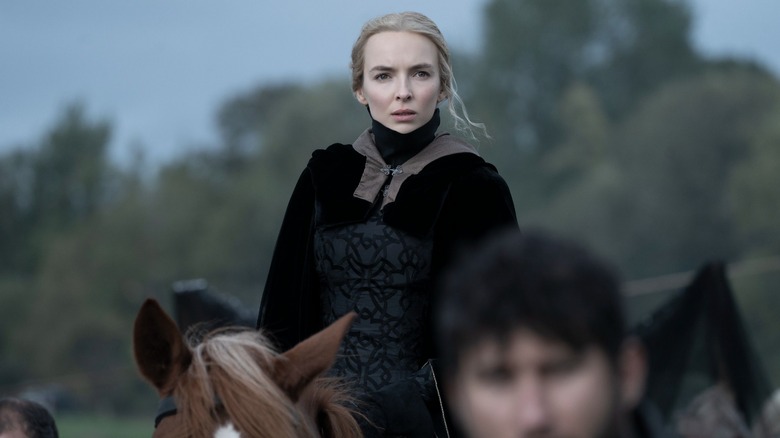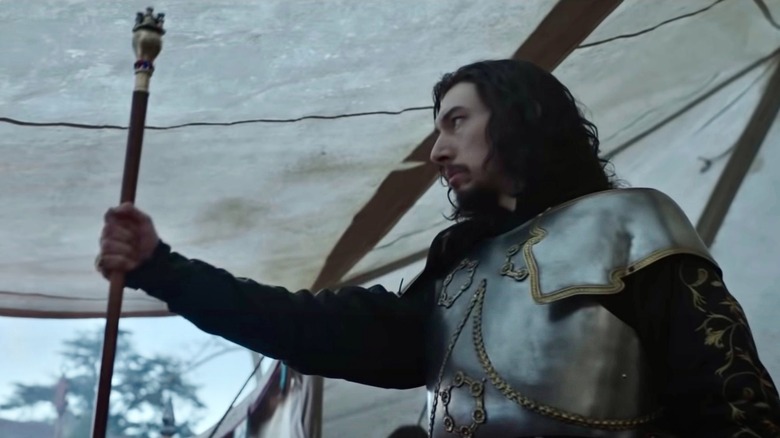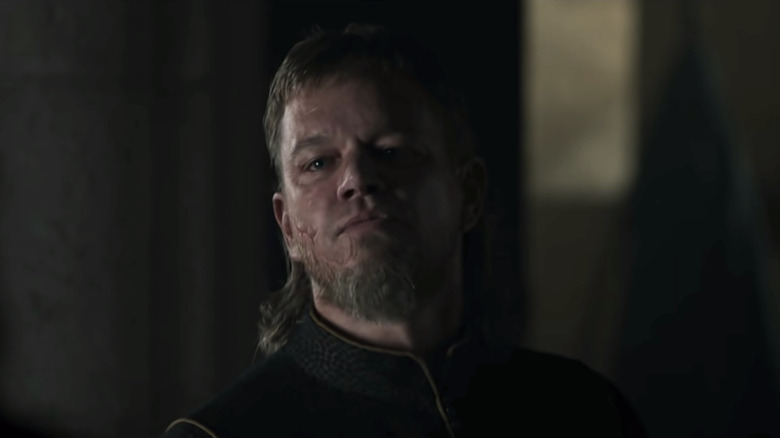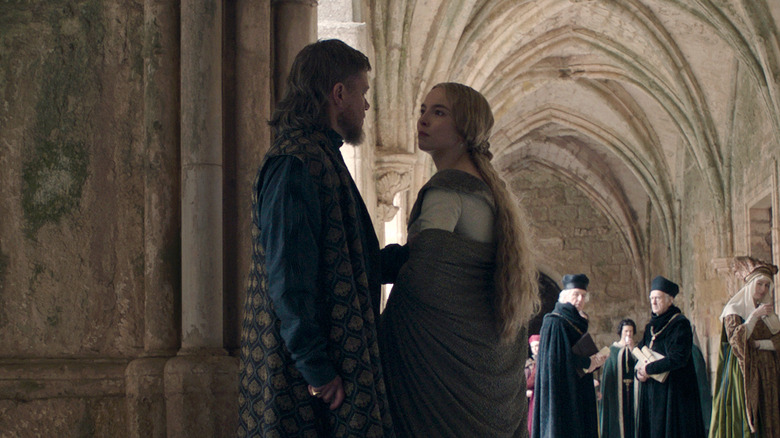The Last Duel Review: Prestige Period Filmmaking, Stunning Swordfights, And Piercing Performances [Venice 2021]
Prestige period filmmaking rarely sizzles like "The Last Duel." Ridley Scott, master of high-budget history, is mercifully in "Gladiator" form rather than "Kingdom of Heaven" with his latest medieval movie. All is as it should be here: stunning swordfights, dazzling duels, nimble narrativization, and psychologically piercing performances from the trio of leads.
The film's accomplishments teeter precariously on the edge of sensitive gender politics given the subject matter. Jodie Comer's Marguerite presents a rarity: a 14th century example of a woman charging rape against a man, Adam Driver's Jacques LeGris. When faced with this divulgence from his wife, Matt Damon's Jean de Carrouges appeals all the way to the king of France for a duel for her honor. In this time and place, the combat not only draws blood but also determines the veracity of her claim in the eyes of the law.
In the run-up to the release of "The Last Duel," the creative team emphasized the bifurcation of duties among the film's three credited screenwriters. The dynamic duo of Matt Damon and Ben Affleck tackled the stories of Jean and Jacques, while indie stalwart Nicole Holofcener wrote from Marguerite's point of view. The division of labor had the potential to be a PR gambit, proactively absolving the Boston bros of any problematic handling of a hot-button issue. But the decision to bring Holofcener on board does serve the film itself, echoing the film's consciousness of subjective perspective at the meta-level of production.
The Rashomon Effect
It's not hard to detect the key structural influence of "The Last Duel" – Akira Kurosawa's landmark 1950 film "Rashomon," the go-to touchstone for any cinematic story interested in clashing interpretations of the same event. The tripartite script divides Jean, Jacques, and Marguerite's recollections and experiences into their own chapters labeled as "the truth according to" each character. Despite experiencing the same chronology so extensively, the film never feels monotonous in the slightest. Scott is never too sentimental with any moment, keeping the proceedings moving at a brisk clip that belies the 152-minute runtime.
Distinct though the chapters are, duplicative or disjointed they never feel. Holofcener's portion of the film diverges from the male gaze where it needs to but stays operationally coherent with the Affleck/Damon segments. "The Last Duel" consistently builds on top of itself, enriching the interpretation of events with each successive recounting.
Of course, Jean looks like a chivalrous gentleman in his own mind, for example, but it's jarring to see just how oblivious he is to the derision of his noble peers as revealed through Jacques' eyes. Subtle shifts in events from the portrayal of a battle against savage foes to the central assault scene are ripe with discussion fodder for eagle-eyed viewers. The same applies to each story's sins of omission, particularly those that occur in the male segments. Holofcener portrays a world of women with vibrant social spheres hiding in plain sight; their revelation in the film's final third serves as a powerful indictment of what men miss when they only see women insofar as they are relevant to their own narrative journeys.
Three Performances in One
"The Last Duel" requires a remarkable amount of self-awareness from each of the film's central figures. They must not only play their character as they see themselves but also twice as they exist in someone else's mind. The precision with which they must shade their performances is nothing short of remarkable.
While a blonde Ben Affleck hamming it up to hilarious effect is undoubtedly the film's scene-stealer, the most impressive performance of the bunch is Jodie Comer. For most of the movie, Marguerite exists purely as an object in the eye of the film's men – less of a person and more of a means to an end. But Comer refuses to flatten the character to their submissive standards, both meeting the assignment while also subverting it through dense subtext. Her hints for the audience that fly over the heads of oblivious guys pay tremendous dividends when "The Last Duel" circles back to her story.
But don't sleep on Matt Damon, who undergoes a tremendous transformation throughout each episode. The unassuming manner in which he portrays Jacques first through his own conception jibes entirely with his frequent iterations of the humble hero. Yet the pathetic, petulant side of his self-assurance, as filtered through Jacques and his navel-gazing disregard for others in pursuit of his own ambitions and as observed through Marguerite, undercut his stature from multiple angles. Damon has proven remarkably willing to subvert expectations of his on-screen persona in recent years. Following a vulnerable turn in "Ford v Ferrari" and a morally ambiguous one in "Stillwater," this is yet another fascinating wrinkle in simplistic understandings of his stardom.
Driver is, of course, compelling in his own right. The presence with which he can hold the screen with his enormity will always astound. But among the triad, Jacques is the most static across stories because he's even an aggressor in his own head. The difference is that, in his mind, he's earned the right to claim what he views as rightfully his by the merits of his own superiority. Watching his flimsy self-justification is quite the illumination of how patriarchal power ensconces itself for generations.
#MeToo Era Relevancy
If there's an area where "The Last Duel" falters slightly, it's in driving home these themes with contemporary relevance. Particularly when trying to understand how a rapist comes to absolve himself of responsibility for the assault, the film gets a bit heavy-handed in telegraphing the ways in which it correlates to issues with which society is still grappling. They especially stand out against the backdrop of Ridley Scott's otherwise masterful, meticulous recreation of medieval milieu.
Cinematographer Dariusz Wolski seems more comfortable photographing the film's epic moments, for it's in these sequences where the film has a real visual spark. There's a crispness to the way he captures the blood, sweat, and spit pouring out of combatants. Such vision and inventiveness aren't quite as present in shooting the social interactions between characters, but there's enough to highlight the differences in each recollection.
Ultimately, Scott knows when to let the script beguile the mind and when to let the action dazzle the eyes. This wisdom has given the 83-year-old English director remarkable longevity across genres and filmmaking styles, and it seldom steers him wrong in "The Last Duel."
/Film rating: 8 out of 10



